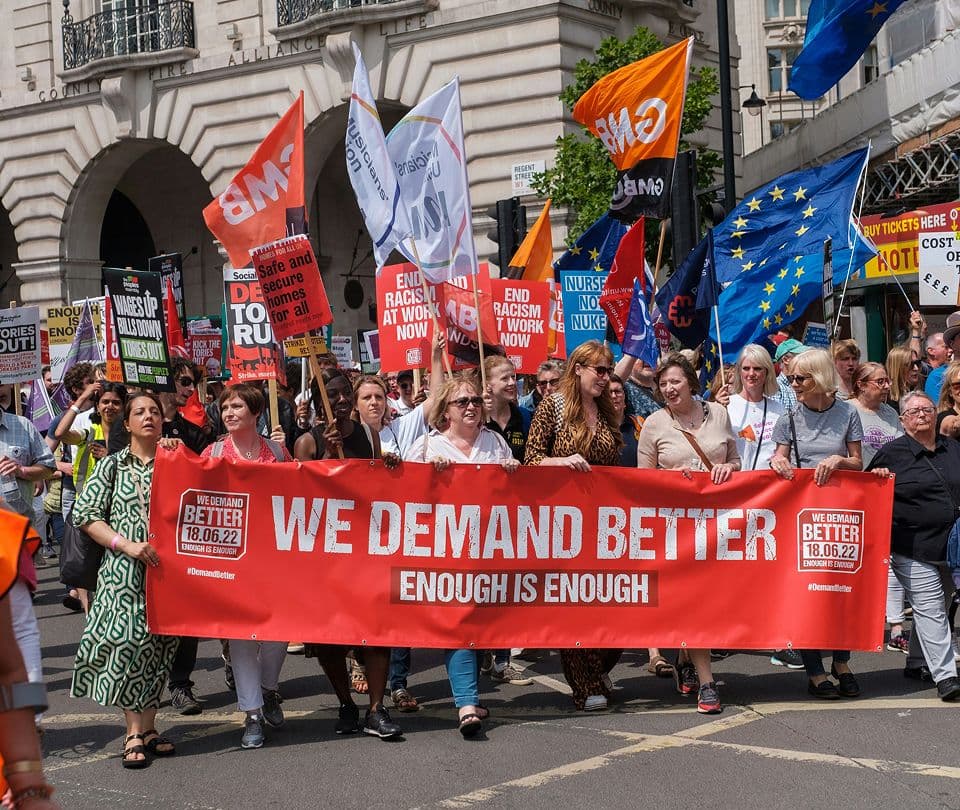Income protection for freelancers and gig workers

What is income protection insurance?
For over 250 years workers have recognised the importance of protecting their income against illness and injury. Until the creation of state benefits, if you were too sick to earn, you were on your own. So, workers banded together in groups called Friendly Societies, each contributing into a fund that members could draw on when they were too ill or badly injured to work.
Today we call this income protection insurance. You take out a policy, while you’re healthy and in work, and it pays you a regular monthly sum if you have to take sick leave. You pay a monthly premium to maintain the policy and there’s no limit to the number of times you can claim for different health conditions, either physical or mental.
Income protection isn’t as well-known as other forms of insurance, but more and more people are discovering its benefits and choosing to protect themselves. Employees use it to make up for the shortfall between statutory or contractual sick pay and the level of income they need to maintain their lifestyle. For people who work outside the traditional employer-employee relationship, freelance income protection insurance can be even more necessary.
Self-employment today
In the past 50 years the UK’s employment model has changed drastically. As of September 2024, there were 4.28 million self-employed workers in the UK, 13% of the workforce. But what exactly is self-employment?
Self-employment is a broader term than it may seem. It includes start-up entrepreneurs, agency workers, sole traders, zero-hour-contracts, artists, freelancers on short-term contracts and – the newest variant – gig economy workers, who often make their living in several jobs at once.
Are you a freelancer or a gig worker?
The lines between categories of self-employment are often blurry, but it’s worth clarifying the differences between these two. Self-employed workers of all kinds share similar advantages, such as the freedom or to control their own time and a tax status that allows them to offset a range of business expenses against their income. However, while employees have legally enforceable employment rights, freelancer and gig economy workers rights are much more limited.
What is a freelancer?
Freelancers typically provide services to clients on a project-by-project or contract basis. They tend to work independently, with the freedom to choose the clients they work with and set their own rates and terms of service. They work onsite or remotely and invoice clients for their work. Some manage to establish them as experts in their field which means they can command high prices for their services but income protection for freelancers can still be a very valuable safety net.
What is a gig worker?
Gig workers carry out temporary, flexible, or occasional work, often arranged through digital platforms and apps. They usually have two or more jobs at any one time, and however long they might work for a particular company they have no formal contractual relationship. They are part of the gig economy, so called because the structure of their work resembles one-off gigs – or ‘engagements’ - rather than full-time permanent jobs.
Despite the clear differences in the status and practice of freelancers and gig workers, ultimately they face the same potential problem: when they aren’t well enough to work, what happens to their income?
Do freelancers and gig workers need income protection?
Employees are legally entitled to statutory sick pay (SSP) from their employers and some will have a more generous allowance written into their contracts. Even then, many employees find an income protection insurance policy to be indispensable.
In contrast, the self-employed have just one employment-related state benefit to fall back on: Employment and Support Allowance (ESA). In limited circumstances it might be possible to claim Universal Credit but otherwise, you could find yourself having to manage on ESA of £92.05 a week.
If you’re a freelancer or a gig worker you’ll be familiar with the relentless pressure to keep working. Unless you’re able to build up a financial buffer, it can feel as if you’re always running to stand still. How can you afford the time and money for a holiday, let alone sick leave?
What would happen if you were forced to stop working? You haven’t planned it, you haven’t saved for it and yet suddenly an illness or injury means your earnings come to a grinding halt. Once that happens it’s too late to do much about it.
Income protection is about being prepared. As a freelancer or gig worker you’re probably used to the difficulties of budgeting for long-term spending without a guaranteed salary and income protection can make it just a little easier. Not only does it provide a level of financial security, it gives you something rare and precious in your circumstances: peace of mind.

How does a freelancer or a gig worker get IP?
One of the misconceptions about income protection is that it’s not available to the self-employed. This isn’t true. It may be easier to apply for income protection insurance if you’re on a regular wage paid through the PAYE system, but insurers know that this product is probably more important for the self-employed than for anyone else. That’s why they’ve developed different ways to calculate the income or irregular earners as part of their underwriting process.
When you apply, you’ll be asked for some basic information, which includes how much you earn from all the work you do. As a freelancer or gig worker you’ll probably already be submitting self-assessment tax returns and these, together with accounts or other records you keep, will usually be enough to establish your average income. An insurer may calculate this over two or three years to get an accurate, reliable figure and the level of cover you can get will be based on this.
Key features to consider
These are the most important features to think about when choosing your income protection policy:
Benefit amount: this is the monthly sum you’d like to receive if you get sick and make a claim. With Eleos the maximum is 65% of your pre-tax income or £2,000, whichever is lower, but you’re free to choose a smaller amount.
Benefit period: this is the maximum time you’ll receive your benefit amount while you’re sick, even if you still unable to work when the period ends. With Eleos you can choose 1 or 2 years. It may help you to know that, according to some insurers, 85% of claims last for less than a year.
Premium: this is the amount you pay each month to maintain your policy and it usually increases each year. If you want to keep your premiums as low as possible you can reduce your benefit amount, increase your waiting period or both.
Waiting period: this is common to virtually all income protection policies and it’s the length of time you choose to wait between stopping work and starting to get paid. It’s designed to allow employees to align the start of their benefit payments with the end of their sick pay or other support they might have. For freelancers and gig workers it will depend on the amount of emergency savings you may feel happy to use. The longer the waiting period you choose, the lower your premiums will be.
Exclusion: your policy will include exclusions for dangerous jobs, hazardous pastimes and pre-existing health conditions. These are standard in all policies. Depending on the personal health information you’ve given, your policy may also include personal exclusions that are specific to you. It’s a good idea to make sure you understand the restrictions these might place on any claim.
How to calculate the income protection cover you need
Only you can know how much you’ll need if you lose your income temporarily. Most people start by adding up those costs they can’t ignore, like rent or mortgage and utility bills. Next, they work out a rough budget for other essentials like food and clothing. With luck you’ll be able to afford enough to cover these expenses and have something left over for casual spending. Don’t forget to factor in any alternative sources of income you might have.
How to claim on your income protection
Once you’ve bought your income protection policy then, as long as you keep up the premium payments you’ll be able to claim as often as you need to if illness or injury stops you from working. Some special conditions apply if you’re claiming more than once for the same condition or if you’re abroad and you can find out more about these issues here.
If you need to make a claim you need to notify your insurer as soon as possible that you have to stop working. Next you fill in the online claim form and send it along with any supporting evidence of earnings and sickness that your insurer asks for. Gig worker and freelancer proof of income can be a little complicated to assemble. There’s more on this here.
FAQs
All policies take into account the policyholder’s age, health, occupation and income. For freelancers and gig workers, proving your income is more difficult than for employees, so it’s a good idea to keep detailed records of everything you earn so an insurer can work out a realistic average. As for occupation, gig workers in particular often have jobs that are considered more dangerous than many, such as couriers and drivers, so this might be a factor in the calculation of your premiums.
Yes, some insurers offer policies which they characterise as being specifically designed for freelancers and gig workers. Essentially they do the same as any other income protection policy so it may be best to compare them with non-specialist policies to see if there are any real advantages in terms of price and cover.
Yes, part-time workers can get income protection although most insurers will require you to be working for a minimum number of hours per week, usually 16 hours.
If you’ve stopped working and started receiving benefit payments, you’ll normally be entitled to return to work on a part-time basis and still receive a proportion of your cover.
Income protection allows you to claim and receive regular monthly payments whenever you’re temporarily unable to work because of illness or injury. Critical illness pays you a lump sum if you’re diagnosed with a serious illness that means you may have to stop working for good.
Some gig workers may have a formal contract with the businesses they work for, but in most cases the arrangement is much more casual. An independent contractor may have various rights arising from the contract, such as guaranteed bonuses for hitting or exceeding certain deadlines and an agreed period of paid work. The average gig worker is unlikely to have anything similar so the term ‘independent contractor’ isn’t usually appropriate.

Related resources

Turning Customer Curiosity Into Confidence: Theea's Coverage Calculator
Introducing Theea's Coverage Calculator: the intuitive insurance tool inspired by thousands of customer conversations that turns anxiety into tailored advice and confusion into confident choices.

Meet Your Newest Eleos Perks
We’re expanding our perks with two new additions designed to turn good intentions into healthy habits. Discover everything you can get for free with an Eleos policy.

Income protection for smokers
If you smoke, you may have a tough time getting income protection insurance, but it’s not impossible.

Do doctors need income protection?
A career as a doctor may be a vocation but you still have to earn a living

Do trade union members need income protection?
What financial support will your union give you if illness or injury forces you to stop working?

Getting Britain Working Again?
On 18th March 2025, the Secretary of State for Work and Pensions announced controversial disability benefit reforms